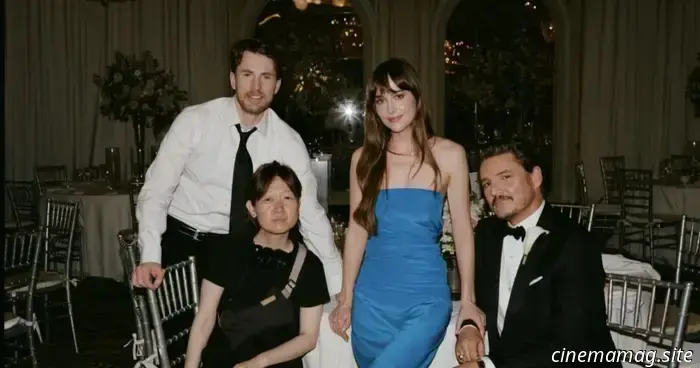
“The Film Reflects Reality”: Celine Song Discusses Materialism, Divine Love, and Self-Worth
Love is portrayed as a commodity in Materialists, the second feature from Celine Song, who wrote and directed Past Lives. Dakota Johnson stars as Lucy, a matchmaker for a high-end dating service. Financial difficulties led to her separation from John (Chris Evans), a struggling actor. Harry (Pedro Pascal), a financier, presents her with a life of unimaginable wealth.
Romantic triangles typically create conflict among lovers vying for supremacy. However, Song aims for something profoundly different: her perspective ultimately eliminates the triangle to focus deeply on love itself, which she refers to as “our last religion.” We spoke with her prior to the film’s wide release.
The Film Stage: Your previous film, Past Lives, was inspired by events in your own life. In this film, you incorporate your experience as a matchmaker into the story. Did that background shape your exploration of wealth?
Celine Song: Wealth? As a playwright and theater writer, I often find myself surrounded by friends who are actors working events. Yet, I could also be seated next to a millionaire donor. Much of it is observational, but a key advantage of being an artist is the ability to navigate diverse socioeconomic contexts. Who supports theater? Predominantly wealthy individuals, even when the performers may struggle, working as caterers.
This film is more personal for me compared to Past Lives, as it addresses concerns that weigh on me daily. I feel a strong connection to the themes, caught between the practical, contemporary aspects and the more idealistic part of me that believes in love, despite its challenges.
I've noticed that your protagonists in both films seem to lack self-acceptance.
You're absolutely right, and I believe it's tied to the notion of self-worth as a commodity. This is particularly prevalent among modern individuals, especially those heavily engaged online. I want to address the tendency to perceive ourselves as products. In the film, Sophie declares, “I’m not merchandise. I’m a person.” Each character grapples with this issue, as does the audience.
Chris Evans' character, John, feels like a failure. As an artist, he finds himself at a low point, uncertain about whether he should continue pursuing his path. After facing so much rejection, he questions whether it's time to accept his losses.
You're touching on an important point. Why does he consider himself a failure? He still has the opportunity to perform on stage and gets cast. So, what contributes to his feelings of inadequacy? Why focus on his perceived failures when he shows such potential?
The truth is that he's struggling with a self-imposed perception of failure. He views himself as a commodity in Lucy’s eyes, and because the person he loves is materialistic, he feels worthless. He poses this question to her: “Am I completely worthless in your system of values?” He believes he is too poor to be worthy of her.
Would he feel this way if he were a more successful actor?
That's an insightful question. I think it relates back to your earlier query about self-esteem. John already struggles with self-acceptance. I think this reflects what all three of my actors experience—despite being incredibly talented and successful, they grapple with this sentiment. The world sees them as thriving, but they know the feeling of “I’m not merchandise; I’m a person,” even while feeling commodified.
Take Pedro, for instance. He might feel treated as a product because he's recognized primarily as the Mandalorian. It's as if he is just that role and not perceived as an individual. This was a central theme I explored with the actors throughout the process: the perception of oneself as less than human or seeing someone else as idealized. While I’m not religious, viewing them in a divine way—as perfect in God's eyes—represents divine love. We are all his creations and, in that regard, perfect.
Created in his image.
Exactly. Regardless of our appearances or the resources we use to enhance them, we are perfect as we are. That has always been a fundamental truth about love. Each of my characters struggles to recognize this in themselves throughout the film. Simultaneously, they harbor assumptions about how others perceive them and strive to express their own views, saying things like, "I see you as perfect." That’s what they are striving to communicate.
I believe the audience will find someone relatable in the film because it tackles universal concerns, especially in our visible yet unseen world. We are constantly observed but not truly seen. I experience this too; when I dress up, I am perceived as an object, yet I don’t feel truly acknowledged.
Can we connect the film's characters to the actors portraying them? Do they also grapple with fears of failure?
If we consider John, Chris's character—if John achieved as much success as Chris, would that change how he feels about himself? That’s a question for the actors. I understand it’s a struggle. What I believe we learn, both in

Other articles
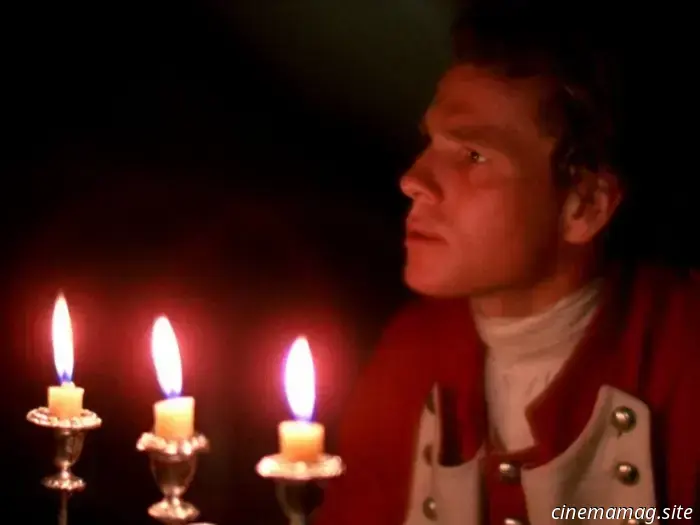 NYC Weekend Preview: Barry Lyndon, John Cazale, A Theater Close By, Gloomy Week & More
NYC Weekend Watch is our weekly summary of repertory screenings. Roxy Cinema will feature The Matrix Reloaded and In the Spirit on 35mm this Friday, with In the Spirit also being shown again on Saturday; a screening of Barry Lyndon will take place on Sunday. Film Forum will present all five films starring John Cazale, as well as a 4K restoration of Shall We Dance?, showcasing Masayuki Suo's version.
NYC Weekend Preview: Barry Lyndon, John Cazale, A Theater Close By, Gloomy Week & More
NYC Weekend Watch is our weekly summary of repertory screenings. Roxy Cinema will feature The Matrix Reloaded and In the Spirit on 35mm this Friday, with In the Spirit also being shown again on Saturday; a screening of Barry Lyndon will take place on Sunday. Film Forum will present all five films starring John Cazale, as well as a 4K restoration of Shall We Dance?, showcasing Masayuki Suo's version.
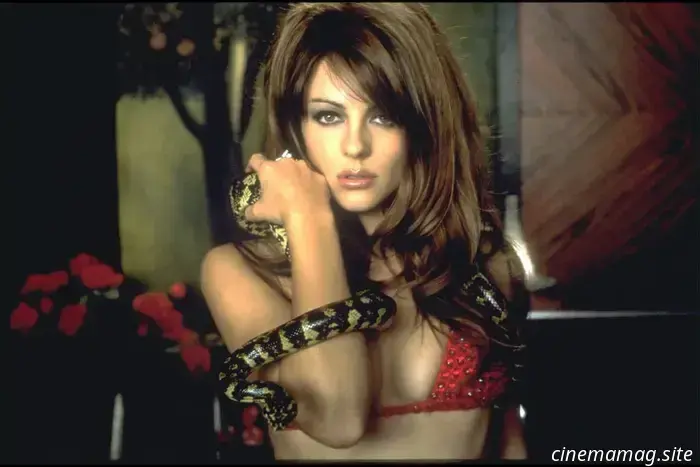
 July on the Criterion Channel includes Miami Vice, Hou Hsiao-hsien, Jacques Rozier, and more.
Eight years ago, we made the significant decision to designate Miami Vice as the greatest action film of this century. This choice was not made casually, nor was it met with complete agreement, but fortune rewards the daring. As part of its recognition, Michael Mann's classic will be available for streaming on Criterion this July, included in the Miami Neonoir collection, alongside Larry Clark's Bully and the recently departed.
July on the Criterion Channel includes Miami Vice, Hou Hsiao-hsien, Jacques Rozier, and more.
Eight years ago, we made the significant decision to designate Miami Vice as the greatest action film of this century. This choice was not made casually, nor was it met with complete agreement, but fortune rewards the daring. As part of its recognition, Michael Mann's classic will be available for streaming on Criterion this July, included in the Miami Neonoir collection, alongside Larry Clark's Bully and the recently departed.
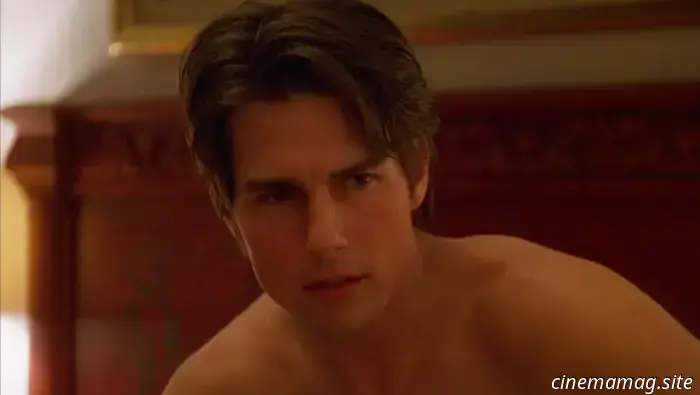 Is Tom Cruise malevolent?
The launch of a new Tom Cruise movie is more focused on Tom Cruise himself than on the actual film. There are constant press tours and red-carpet interviews with so-called journalists who might have been created just for the occasion to pose questions to him. These interview snippets often go viral swiftly, along with countless rankings of the films, and in the midst of all this,
Is Tom Cruise malevolent?
The launch of a new Tom Cruise movie is more focused on Tom Cruise himself than on the actual film. There are constant press tours and red-carpet interviews with so-called journalists who might have been created just for the occasion to pose questions to him. These interview snippets often go viral swiftly, along with countless rankings of the films, and in the midst of all this,
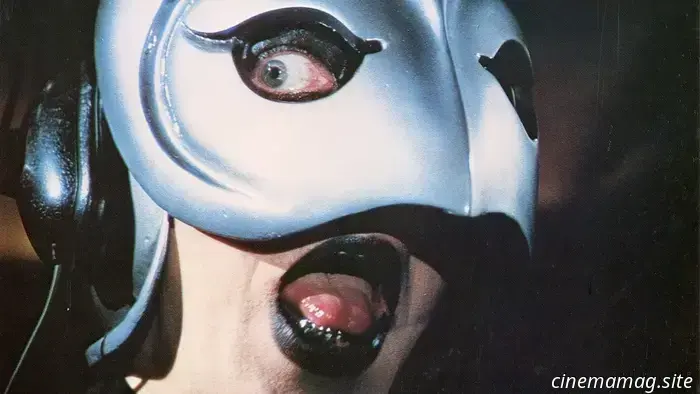 Paul Williams is working on a stage musical adaptation of Phantom of the Paradise.
Phantom of the Paradise, the 1974 cult classic directed by Brian de Palma, reimagined Phantom of the Opera and featured the legendary songwriter Paul Williams in the role of the
Paul Williams is working on a stage musical adaptation of Phantom of the Paradise.
Phantom of the Paradise, the 1974 cult classic directed by Brian de Palma, reimagined Phantom of the Opera and featured the legendary songwriter Paul Williams in the role of the
“The Film Reflects Reality”: Celine Song Discusses Materialism, Divine Love, and Self-Worth
Love is treated as a commodity in the second feature from Celine Song, who wrote and directed Past Lives. Dakota Johnson portrays Lucy, a matchmaker for a high-end dating service. Financial issues led to her split with John (Chris Evans), an actor facing challenges in his career. Harry (Pedro Pascal), a financier, presents her with the prospect of a lifestyle filled with extraordinary wealth. Romantic triangles often tend to
